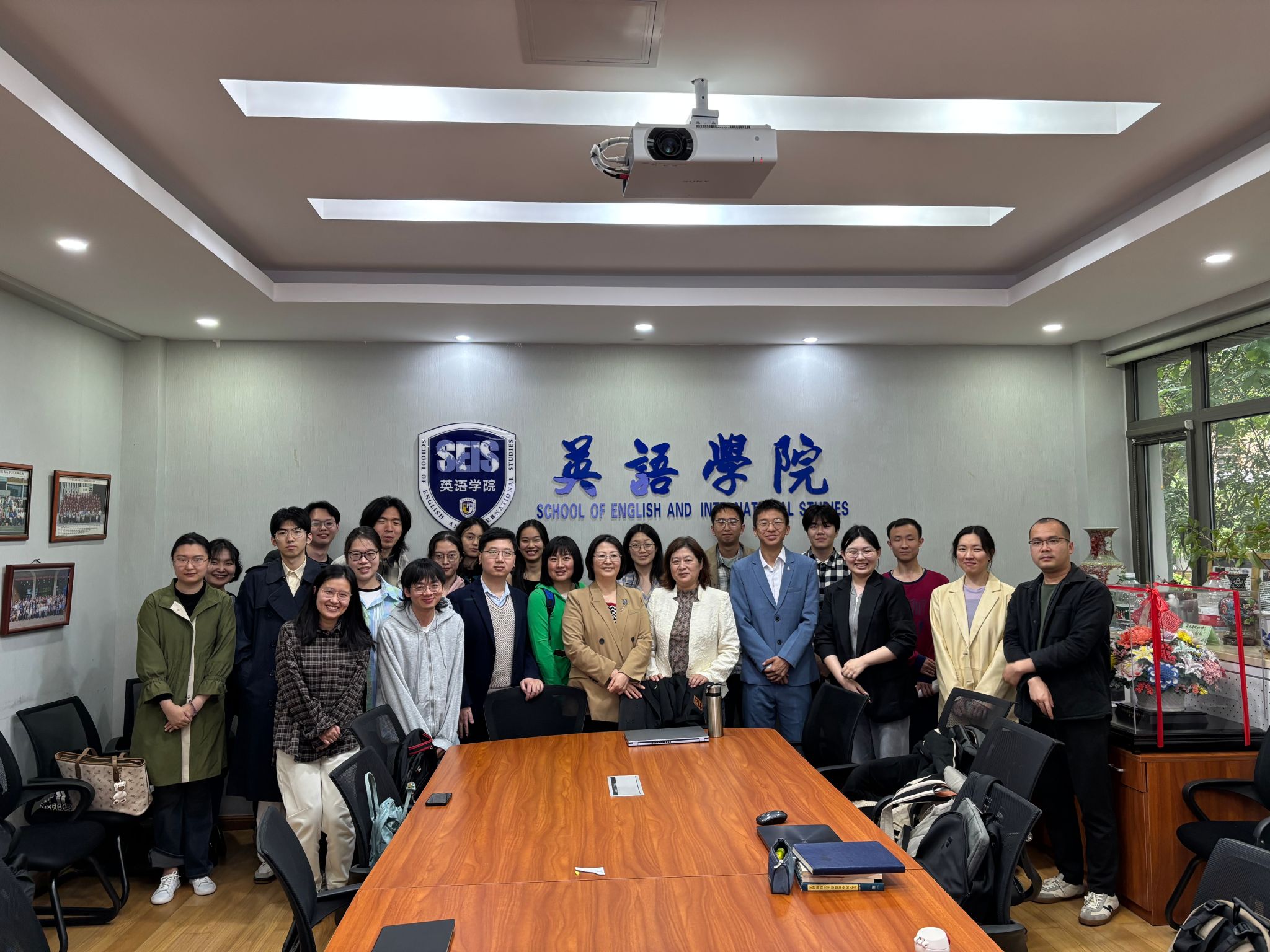On May 9, 2025, Professor Shen Fuying from Shandong University was invited to deliver an academic lecture at Beijing Foreign Studies University, titled “The Adaptation of Celtic Culture in Joyce’s Novels.” The event attracted a large audience of faculty and students, creating a lively and engaging atmosphere.
Professor Shen began by highlighting that while James Joyce is renowned as a master of world modernist literature, with his modernist themes and artistic techniques extensively studied, his identity as the “Irish Shakespeare of modern times” and the Irishness of his works have received comparatively little scholarly attention. Professor Shen emphasized that Joyce extensively incorporates elements of Irish mythology in his novels, skillfully weaving in motifs such as transformation by water, the juxtaposition of opposites, the liminality between life and death, and the allure of femininity. Through constructing the persona of the Bard, Joyce demonstrates unique qualities such as prophetic insight, individuality, seclusion, a sense of national and global responsibility, introspective truth-seeking, spiritual cultivation, and a pursuit of justice.
In the second part of the lecture, Professor Shen systematically reviewed the relationship between Celtic culture and the literary traditions of Britain, Ireland, and Europe. She pointed out that the Celtic literary tradition encompasses not only literature written in Gaelic from Ireland, Scotland, and Wales, but has also profoundly influenced the literary traditions of countries such as Britain, France, and Germany. Characterized by spirituality, romanticism, reverence for nature, and heroism, Celtic culture combines a deep sense of national identity with prophetic responsibility, and has long played a significant role in both confronting and blending with rationalist traditions.
When analyzing Joyce’s works in detail, Professor Shen explored how Joyce’s aesthetic thought merges with Celtic elements through the Bardic identity, addressing themes such as epiphany, transcendence, impersonality, tragic emotion, and redemption. She traced the manifestations of Celtic motifs across various periods—from Arthurian legends and the Middle Ages to the Renaissance, Romanticism, and Modernism—highlighting archetypal images such as bards, elves, magic cauldrons, sacred trees, dragons, and the seductive power of women.
In conclusion, Professor Shen stressed that the Celtic literary tradition and its elements have not only enriched the spiritual connotations of European literature but have also provided modernist literature with unique aesthetic resources. She encouraged faculty and students to pay close attention to issues of cultural diversity and national identity in literature, and to actively participate in cross-cultural academic exchanges.


